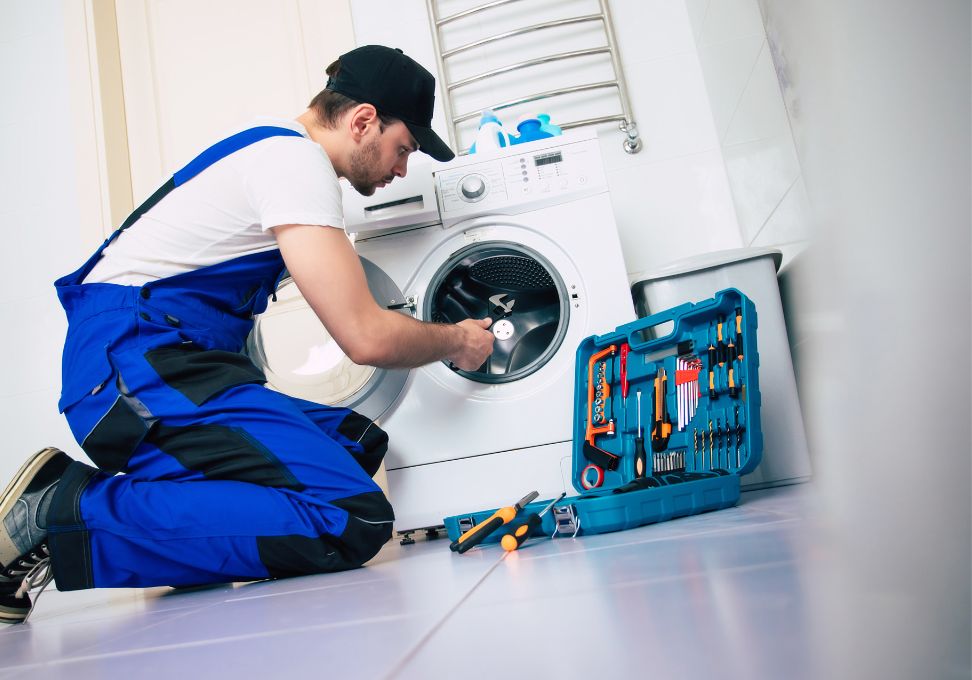When It’s Okay to Use Generic Parts in Appliance Repairs

When an appliance breaks, choosing the right replacement parts is essential for a successful repair. Many homeowners face the decision between using generic parts or OEM (Original Equipment Manufacturer) components. While OEM parts are often preferred for their fit and reliability, there are situations where generic parts can be a practical and safe choice.
In this article, we will discuss when it is appropriate to use generic parts in appliance repairs. We will also outline the benefits and limitations of generic components to help homeowners make informed decisions.
Understanding Generic Parts
Generic parts, also called aftermarket or non-OEM parts, are produced by companies other than the original appliance manufacturer. These parts are designed to fit a range of models or brands and often cost less than OEM parts.
Despite being more affordable, generic parts can vary widely in quality and compatibility. Some generic parts work well for specific repairs, while others may cause issues if they don’t meet manufacturer specifications.
Key Differences Between OEM and Non-OEM Appliance Parts
Before deciding to use generic parts, it is important to understand key differences between OEM and non-OEM appliance parts:
- Manufacturing standards: OEM parts are made to the appliance manufacturer’s exact specifications and tested for quality. Generic parts may not undergo the same rigorous testing.
- Fit and compatibility: OEM parts fit perfectly without modification. Generic parts sometimes require adjustments or may not fit precisely.
- Durability: OEM parts typically last longer, as they use materials designed specifically for the appliance. Generic parts may use lower-quality materials.
- Warranty: OEM parts often come with manufacturer warranties. Using generic parts can sometimes void the appliance warranty or repair labor warranty.
- Cost: Generic parts usually cost less, which can reduce repair expenses.
Knowing these differences helps determine when generic parts are suitable.
When It’s Okay to Use Generic Parts
1. Non-Critical Components
For parts that don’t impact safety or core appliance functions, generic parts are often a good option. These include:
- Knobs and buttons
- Shelves or racks
- Door handles and hinges
- Trim pieces or panels
These parts are generally less complex and easier to replace, so a well-made generic version can work effectively without risking appliance performance.
2. Out-of-Warranty Appliances
If your appliance is older and no longer under warranty, cost savings may become a priority. Using generic parts in these cases can extend the life of the appliance without high expenses.
For example, replacing a worn door seal or water inlet valve with a quality generic part can restore function affordably.
3. Parts That Are Hard to Find
For discontinued appliance models or parts that are difficult to source from the manufacturer, generic parts may be the only practical choice. Many aftermarket suppliers stock replacements for older or less common appliances.
Choosing a generic part here can avoid long delays and help maintain your appliance’s usability.
4. Temporary Repairs
Sometimes generic parts serve as a temporary fix while waiting for an OEM part to arrive. This can be useful in emergencies where immediate repair is needed.
In such cases, the generic part keeps the appliance operational until a permanent solution is installed.
5. When the Technician Recommends It
Experienced appliance repair professionals can evaluate the quality and suitability of generic parts. If your technician confirms a generic part meets safety and compatibility standards for your repair, it can be a smart way to save money.
Always discuss part options with your technician before approving the repair.
Risks and Considerations with Generic Parts
While generic parts can be cost-effective, there are some risks:
- Potential for poor fit: Ill-fitting parts can cause leaks, noise, or malfunction.
- Reduced lifespan: Generic parts may wear out faster, leading to additional repairs.
- Warranty issues: Use of generic parts may void appliance or repair warranties.
- Safety concerns: Electrical or gas components that don’t meet standards can pose fire or shock hazards.
Weigh these risks carefully before choosing generic parts, especially for critical components.
Tips for Choosing Quality Generic Parts
If you decide to use generic parts, consider these tips:
- Buy from reputable suppliers: Choose well-known appliance parts distributors with good reviews.
- Check for certifications: Look for safety marks like UL or CSA on electrical parts.
- Verify model compatibility: Confirm the part fits your specific appliance brand and model.
- Ask about warranties: Select parts with clear return policies and warranties.
- Work with licensed technicians: Skilled professionals can ensure proper installation and compatibility.
Following these guidelines helps maximize the chances of a successful repair.
Cost Implications of Generic Parts
Generic parts typically cost 20–50% less than OEM parts. This savings can be significant for repairs involving expensive components like pumps, valves, or motors.
However, it’s important to consider the total cost of ownership. A cheap generic part that fails prematurely may lead to higher labor costs for repeat repairs.
Discuss with your technician whether the price difference justifies the expected lifespan of the generic part.
Final Thoughts
Using generic parts in appliance repairs can be a budget-friendly and practical choice in certain situations. Non-critical components, out-of-warranty appliances, hard-to-find parts, temporary fixes, and technician-approved parts are good candidates.
However, understanding key differences between OEM and non-OEM appliance parts is essential before making a decision. This is particularly true for services like washer repair in Tampa, FL, where OEM parts offer guaranteed fit, safety, and long-term reliability for critical or high-value appliances.
Always consult a qualified appliance repair professional, such as Mr. Appliance of Tampa Bay, Florida, to evaluate your options. Together, you can choose parts that balance cost, performance, and safety to keep your appliances running effectively.
Making informed choices about replacement parts helps extend the life of your appliances while protecting your investment and your home.
